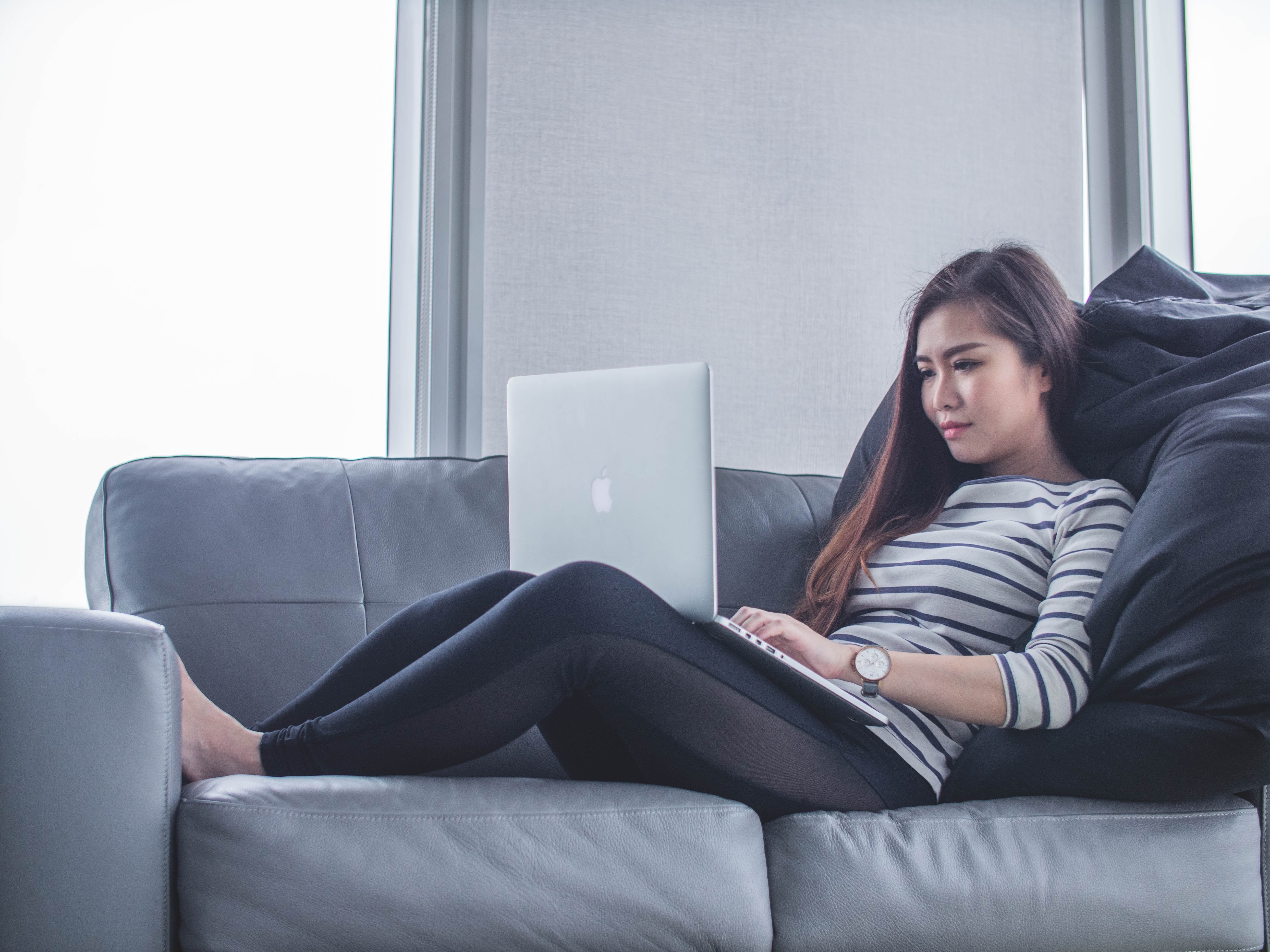Healthy relationships are known to be key for our mental well-being.
A well-cited, 80-year study by Harvard researchers found that “our relationships and how happy we are in our relationships has a powerful influence on our health,”. Further research shows that people who engage in supportive, positive relationships produce more oxytocin, which can boost our immune systems, allow us to physically heal quicker, and mean we are less likely to experience the negative effects of stress, anxiety, and depression.
Tech to keep in touch
Pre-social distancing, technology was often blamed for making us feel more socially isolated; but we can also use it to build the sense of real-life community that we likely miss at the moment. Try ensuring that you speak to someone who makes you feel uplifted on the phone or via video call every day. You can even arrange to share meals, play online games, or have creative sessions with loved ones via video call using apps like Zoom or Houseparty. We can even host virtual dinner parties by eating meals at the same time as those we miss; or have virtual book clubs – where you discuss a book you are all reading on a fortnightly call.
Social media self-isolation support groups (globally on Facebook, locally on Nextdoor, or you can make your own using Whatsapp) are popping up to help members stay positive with humor; share novel ideas on using isolation time productively; movie and box-set advice; to spread useful information and updates. These groups can help us to pool resources and knowledge; realise that our feelings about the situation are normal; and hopefully find the support we need.
Supporting others
As well as contacting those we trust and feel positive around when we are struggling ourselves, reaching out to those who might be feeling alone, anxious or overwhelmed, can also help us get through hard times together. Every morning when you wake up, try to think of two people you could check in on that day, with a message, call or supportive voice note to see how they are doing. Be a rock for them. Helping others even boosts our own mental well-being. Supporting small businesses (like when choosing online exercise classes from instructors or buying food from local independent grocers) can also help people with financial worries. We can also donate to food banks, homeless shelters, services for the elderly or appeals like the UK’s National Emergencies Trust, and volunteer to help the NHS transport supplies or make check-in calls to those most in need.
Getting along with your housemates
If you live with other people, keep in mind that we all deal with stress differently, and all have “up” and “down” days. In general, taking a few breaths before we react to someone else’s emotionally triggering behavior, and being open about how we feel and our needs – perhaps using the “Nonviolent Communication” method – rather than letting resentment build up, can help deepen mutual compassion and understanding.
This recent Freakonomics podcast episode discusses the effects of the pandemic on urban populations and marriages. Acclaimed relationship therapist Esther Perel is also sharing a four-part live (also available recorded) “love under lock down” series on her YouTube channel. There is more practical advice for isolating with your family in this LBC Radio interview transcript.
Learning to self-soothe
It is also important to learn to look after our own emotional well-being as much as we can – this could be a good opportunity to practice. It can help to make sure we do something we really enjoy every day (whether that’s dancing, singing, reading a good book or having a relaxing bath), keep on top of our sleep, exercise regularly, eat well and take breaks from technology. Journalling is a great way to understand, process and document our feelings, as is meditation; and listening to relaxing music (this is my favorite calming track right now) and spending time in nature (even with a house plant) is also known to boost our mood.
I have written this guide to surviving self-isolation, according to your love language. If you miss physical contact, for example: give yourself or your pillow a hug; stroke your face, shoulders and arms; or apply lotion to your body to soothe yourself before you go to sleep each night.
You can find other resources with Mind: Unlocked here, and the NHS has also published useful information on “Mental wellbeing while staying at home“. Note that you should always seek the help of a medical professional, trained counselor or psychotherapist if you feel unable to cope with persistent negative feelings.
This is bringing the world together
Research has found that shared negative experiences can bring people emotionally closer together. Although we might feel alone, this is also one of the most intense and novel shared experiences on a local, national and global level in generations. International governments are even working together to share information and resources with the World Health Organiszation.
Perhaps we will connect more deeply with each other, if we feel able to open up and understand the struggles that we are all facing as human beings. Many of us might feel like we are able to have deeper conversations with our communities and support those in need now more than ever, as a result of our shared vulnerability.
Jessica Warren is co-founder of Mind: Unlocked – a mental well-being business that provides practical tools, courses and workshops to help people cope with the stress of everyday modern life. She has been featured as a wellness speaker on BBC Radio and at conferences like Wanderlust and Eurekafest; and writes for Thrive Global, Economia Magazine, and the StartUp and P.S. I Love You publications on Medium.


